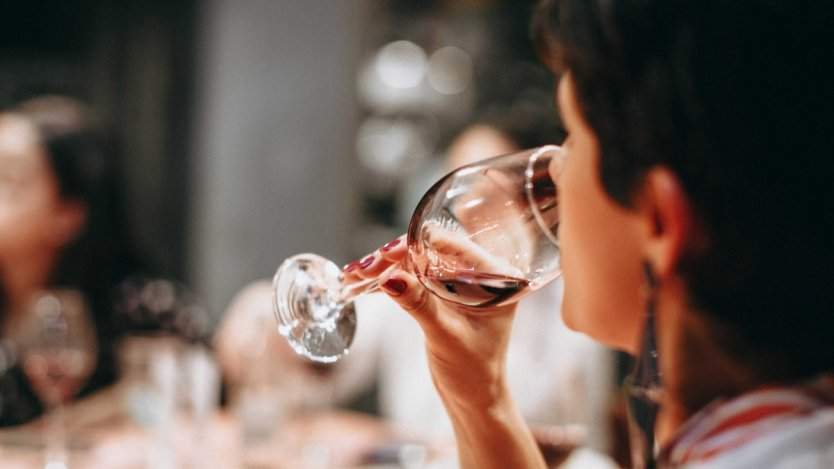Not too long ago, the concept of “natural wine” was practically unheard of, let alone requested and expected of restaurants to have on their wine lists. Fast forward to 2019, and the practice of making wines with minimal intervention between vineyard and bottle has become commonplace. This is especially true in Montreal, so much so that RAW Wine, a global festival dedicated to all things natural wine, is making its sole Canadian pit stop for the second year in a row on October 24 and 25. It makes sense in a city where, as owner of Joe Beef, David McMillan, puts it, “We couldn’t even give conventional wine away for free.”
However, not everyone has jumped aboard the natural wine bandwagon. Both the taste and attitudes of those who avidly promote it can be polarizing, to say the least. Not everyone wants to sip on a glass of barnyard funk while listening to a new-age sommelier proselytize about how fortunate they are to be enjoying this particular vintage. As with all debates though, the truth is rarely black or white; the same holds true with arguments for and against natural wine. And not surprisingly, there can be shared opinions between those in both camps.
Emily Campeau is the wine buyer for Montreal restaurant, Candide, and is presently interning with Franz Weninger, a natural wine producer in Austria. Having started in the industry as a cook, Campeau likens the benefits of natural wine to the purity of fresh, seasonal ingredients.
![Image for [node:title]](/sites/default/files/styles/article_freeheight/public/field/image/quebec_natural_wine.jpg?itok=ReasMCos)
“Think about a good tomato salad with tomatoes from the garden, good salt, and some herbs. It tastes like a tomato, a ripe juicy one, with the sweetness fighting a friendly battle with acidity,” Campeau says, “Now replace that tomato with plump, sweet, healthy grapes. We were in the cellar two weeks ago, standing in front of the boxes containing these grapes, looking over the fruit, discussing how we would make them into wine. We took the grapes, keep them on the stems or stemmed them, put them in some sort of container, and let the magic happen. No additions, no attempt to make it taste a different way, no added sugar for more alcohol, no acidification, no sulphur for protection—let it be what it wants to be.”
Her description does evoke a certain sense of romanticism, but natural wine can be tricky to get right given that producers are much more at the mercy of their environment. And because natural wine is usually pretty funky, it can be difficult for the average palate to ascertain if a wine is “off” or if that’s just the way it’s meant to taste. Campeau, however, doesn’t view this as a detriment, but rather, an opportunity to embrace the diversity and variation that comes with natural wine.
“Not everybody has the same threshold for different faults, and what is undrinkable for one person will be another one’s delight,” she notes. “When confronted with patrons that say, ‘I don’t know how to say if a bottle is good or bad,’ I always answer, ‘Wine is a simple thing. Whether you are a professional or not it all comes down to one thing: do you think it tastes good?’”

Jean Aubry is the wine critic for Le Devoir and trained at the Institute of Vine and Wine Science in Bordeaux. Although he agrees that, “there’s wine for everybody, every palate,” he also argues that some natural wine is objectively off, and that it can become difficult for consumers to differentiate this, especially when a sommelier is avidly pushing a particular wine. “Wines shouldn’t be plonk. You wouldn’t expect a glass of milk that is putrid; it’s the same with wine,” Aubry elaborates. “Customers will feel that it is off. If you give a little baby something that is not good, they will recognize it. So, go by your instinct, if you like it, OK.”
If you’re not sure whether or not your instinct is steering you in the right direction, Aubry’s suggestion is to assess the acidity of what you are drinking. “If your nose just starts to contract under volatile acidity, it sharpens the aromas. High acidity dries the palate,” he explains, clarifying that, “I’m not against higher acidity, but it has to be in balance.”
Élyse Lambert is a Master Sommelier, one of less than 300 around the globe (pictured above, right). From her perspective, she views wine as something that has the power to bring people together, but notes that in the natural versus conventional wine debate, opinions tend to be polarizing.
“I want to keep wine very inclusive,” Lambert says. “Regardless of what you drink, it’s about getting together.”
It’s not to say that she doesn’t appreciate what natural wine has to offer, but she emphasizes that her job as a sommelier is to give customers what they want.
“My role as a sommelier is to try to inform customers. They can make up their mind about what they like or not, but it’s not for me to tell them what they should drink,” Lambert explains.
Lambert also highlights circumstances under which adding sulphites to wine is advantageous in facilitating consistency and increasing a wine’s potential for aging.
“When you work with wine that has protection {sulphites before bottling}, it allows the wine to travel well and be a bit more stable,” Lambert describes. “There’s also a bit more potential for aging, particularly for white wine. With red wine, the tannins protect it, but white is more fragile.”
Ultimately, Lambert views organic wine as a bridge between the natural versus conventional gap. She notes that promoting organic wine can encourage sustainable practices and a respect for terroir, even if sulphites make it into the end product.
“I hope that people will work with more vision about their overall duty, natural or not, in wanting to respect the environment. This is where we start the discussion. I’ve been meeting producers who didn’t want to go natural, but have gone organic. They are thinking about their footprint. Working naturally—the last step is omitting the use of sulphites—that’s where we draw the line between organic and natural. I’ve been talking about organic wine for a long time because these practices have just as much potential to protect the Earth {as natural wine}.”













